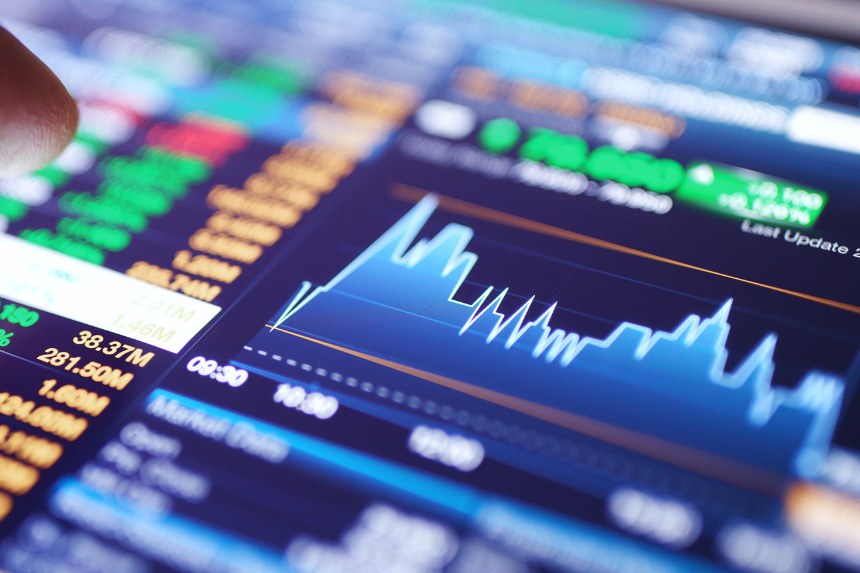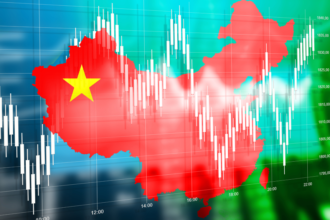President Donald Trump’s growing public spat with Federal Reserve Chair Jerome Powell sent shockwaves across international financial markets this week, intensifying the US stock market meltdown. There were clear indications of discomfort in market sentiment as soon as trade floors opened. Trump’s vicious social media tirade, in which he referred to Powell as “a major loser” for not enacting proactive interest rate decreases, served as the immediate trigger.
An already precarious financial situation has become even more unpredictable as a result of this most recent rhetorical assault, as investors continue to worry about government stability and policy direction. The US stock market meltdown is now viewed as a direct result of the erosion of trust between the White House and the country’s central bank, rather than merely a response to deteriorating economic signals.
What Caused the Most Recent Crash in the US Stock Market?
Trump’s Twitter tirade against Powell, in which he claimed the Fed had been continuously too slow to respond to changing economic conditions, was the direct cause of the US stock market meltdown. Powell’s opposition to more rapid and significant interest rate decreases was the main source of Trump’s displeasure.
Trump wrote: “Unless Mr. Too Late, a big loser, lowers interest rates, NOW, there can be a SLOWING of the economy.” As traders factored in more uncertainty regarding future interest rate policy and the overall state of the economy, this direct criticism stoked market hysteria.
The repercussions were severe and quick. In an indication that economic instability was not only probable but also imminent, investors sold equities across key indices. Uncertainty escalated, deepening the US stock market slump.
How Did the Trump-Powell Rift Affect Markets?
Wall Street was immediately affected by the Trump-Powell altercation. Significant year-to-date gains were obliterated by the steep losses registered by major US indices. In a single session, the Dow Jones Industrial Average lost 2.5 percent, while the S&P 500 fell about 2.4%. Even worse, the tech-heavy Nasdaq saw a decline of over 2.5 percent.
The aftershocks also affected the larger financial sector. The selloff did not spare historically strong assets like the dollar and US government bonds, which are frequently seen as safe havens. Investor confidence in the dollar fell precipitously during this stage of the US stock market crash, as seen by the dollar index, which measures the dollar’s strength versus key international currencies, plunging to its lowest level since 2022.
In the meantime, as investors became increasingly concerned about inflation, policy uncertainty, and long-term economic development, they sought higher compensation to hold onto government debt, which caused yields on US Treasury bonds to rise.
Why is gold rising in the midst of the US stock market meltdown?
In the midst of this volatile market climate, gold hit a record high, breaking $3,400 per ounce for the first time. The ascent of the precious metal highlights the traditional reaction of investors to financial instability: gold shines when stocks stumble. A flight to safety has been hastened by the US stock market meltdown, with both individual and institutional investors shifting their money into assets that have a history of holding their value in times of crisis.
The Trump-Powell controversy is just one aspect of the situation. The trend is being strengthened by ongoing trade disputes, especially those related to US tariffs and changing international alignments. Gold provides a hedge against monetary policy volatility as well as geopolitical risk during periods of increased uncertainty.
In the midst of the US stock market crash, can Powell withstand political pressure?
Powell and Trump have had a tense relationship since the beginning of Powell’s term, so Trump’s criticism of Powell is not new. The president has continuously advocated for lower interest rates because he sees them as a means of promoting economic expansion and preserving market momentum.
Trump’s most recent suggestion that Powell ought to be dismissed caused a stir in both political and business circles. The idea has heightened the sense that the Federal Reserve’s political independence is in jeopardy, even though legal experts have noted that the President does not have the authority to fire the Fed Chair.
Some administration officials acknowledged that the White House had started looking into ways to get rid of Powell or otherwise curtail his power during the height of the US stock market crisis. This development has only increased conjecture that future political meddling in the central bank’s policy decisions may be even more pronounced.
Powell, for his part, has insisted that the Fed does not act under political pressure but rather on economic facts and long-term financial stability. In the upcoming months, his unwavering dedication to policy independence will probably be put to the test.
How Will the US Stock Market Crash Affect Investors Going Forward?
The future of investors is become more complicated as the US stock market crash continues to play out. In order to successfully navigate the coming weeks, it may be crucial to diversify your portfolio, pay careful attention to economic data releases, and engage with stocks with caution.
Alternative choices for individuals looking to lower risk include safe-haven investments like gold, defensive sector equities, and specific types of government debt. However, because short-term price fluctuations make room for tactical gains, speculative traders could find chances amid market instability.
One of the most complicated economic environments in recent memory is created by the continuous conflict between Trump and Powell and the uncertainties surrounding international trade. As the US stock market meltdown continues to unfold in the midst of political and financial upheaval, it will be crucial to remain educated and flexible.
In conclusion
An already precarious financial situation has become even more unstable as a result of the drama involving President Trump and Jerome Powell. The intensifying US stock market meltdown demonstrates how vulnerable international investors are to changes in the political climate and the course of legislation.
In the upcoming weeks, market movements will probably be influenced by Powell’s decision to give in to political pressure. Until then, anyone navigating this time of extreme economic uncertainty will need to adopt a careful, data-driven approach to investing.








